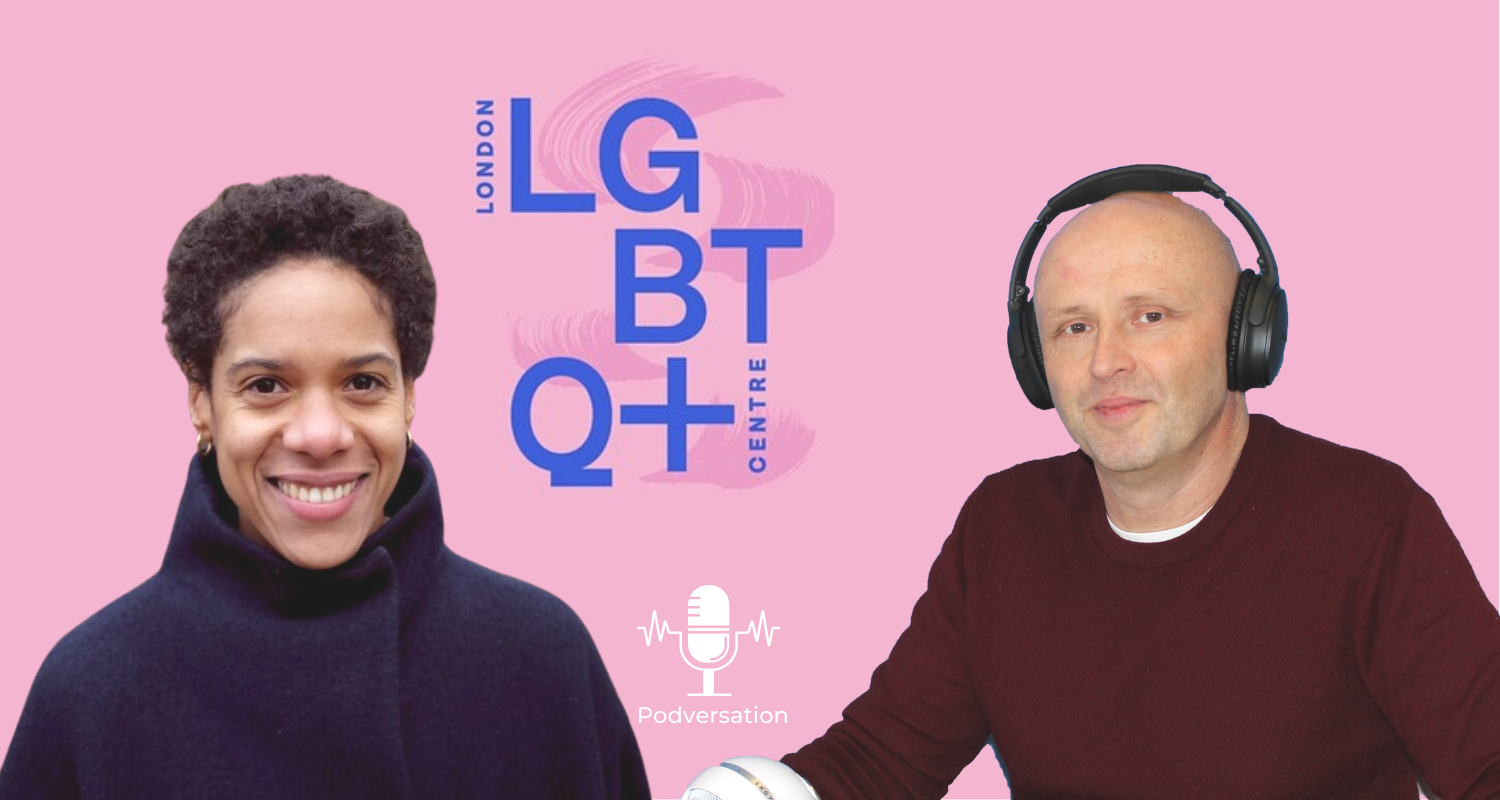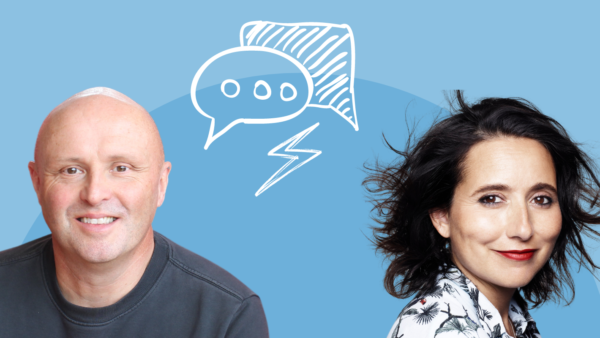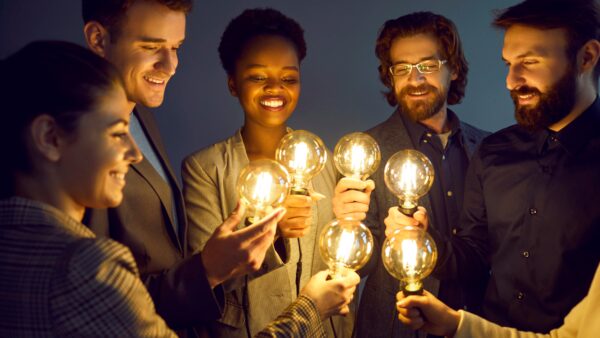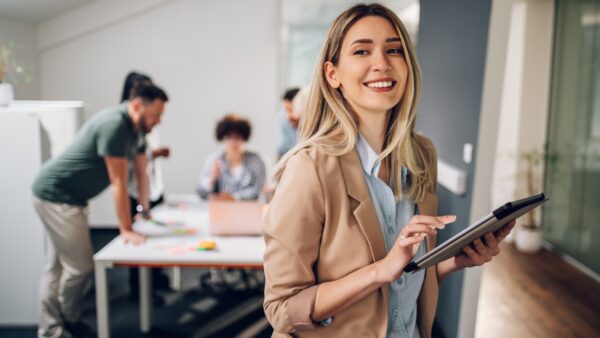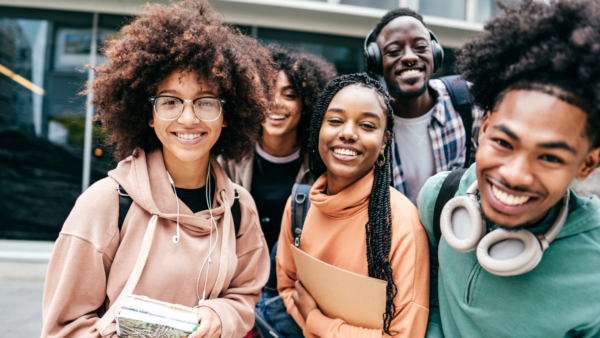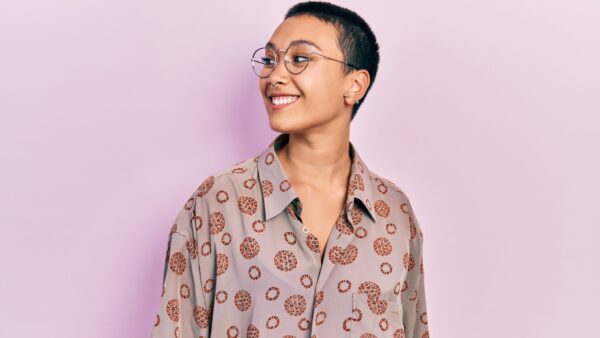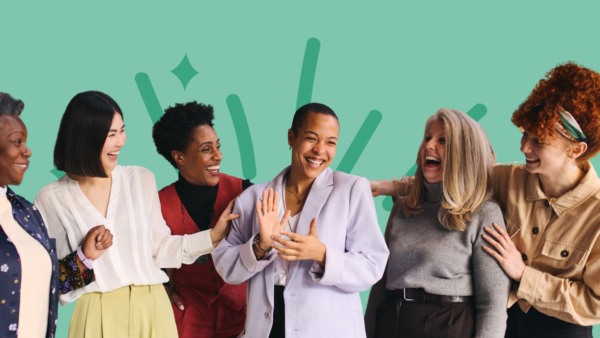Hi, my name’s Dr Paul Brewerton, the strengths guy, Doctor of Organisational Psychology and founder and Chair of Strengthscope. I am delighted to say that I’m joined today by Bisila Noha, who is going to be telling us a powerful story of inclusion – how the LGBTQ+ Community Centre in London came to life and how it’s aiming to become a permanent place of inclusion in London. Welcome Bisila.
Bisila Noha is the Business Development Manager at the London LGBTQ+ Community Centre. With a background in Translation and International Relations, Bisila has vast experience both in the corporate and non-for-profit sectors having worked at companies such as Apple. She co-directs the arts and activism organisation Lon-art Creative and is a trustee at Headway East London.
Bisila is also a ceramic artist. Her work has been showcased in numerous exhibitions and fairs in the UK and featured on various media outlets such as The Financial Times, Elle Decoration, Evening Standard, Ceramic Review or The New York Times T Magazine.
As we’re recording this, it is June 2022 so Pride month. We are also very close to the 50th anniversary of Pride in London, which takes place in about 10 days’ time. So the timing for our conversation is perfect.
Bisila, tell me about your personal story (from like birth to now) and where your story and the Community Centre story intersect?
Translation and Interpreting
International Relations & Diplomacy
Germany, Vienna, San Francisco
Move to London 2013
Translation and Advertising + Lon-art Creative
Ceramics u-turn
Pandemic – career shift. Joined the Centre + Design Can
Ceramics: sculpture and new journey
What is your vision for the centre? What are your goals and have they changed since the pandemic?
Vision: A more connected, belonging and thriving LGBTQ+ community in London.
Mission: To provide London with a safe, sober, intersectional, intergenerational, community centre and café where all LGBTQ+ people feel welcome and supported, can build connections, and flourish.
Goals:
The main goal has always been to open the community centre
Now that we are open our goals are to:
- make sure as many voices within the community are part of it, can use it and benefit from it
- put the Centre at the service of other LGBTQ+ organisations in London so that they also can keep growing
- use the Centre to gather insights to improve services in London. Working with Southwark Council – see how the Centre can benefit locals
Research:
A New Queer London that delves into the way that LGBTQ+ people experience communities and spaces post-pandemic. Thanks to it we know that…
- 70% of respondents said that the pandemic have had a negative impact on the LGBTQ+ community in London.
- 45.22% feel less connected to the community since the pandemic started.
- 97% believe that there are not enough LGBTQ+ spaces in London.
The project is pretty much finished and will be published in September. We hope that local authorities, like the GLA find it beneficial to improve the offer of LGBT spaces in London, given that 60% of queer spaces have closed down in the last decade.
Future = social prescribing
Visitors say that coming to the Centre is more beneficial than therapy. How can we learn more about it?
Tell me about the story of the Centre and the challenges you faced in securing a pop-up and now permanent space
History:
2017 – community consultations through five open meetings attended by 750 community members
2018 – crowdfunding campaign
2018/2019 – Partner organisations relationship building + Initial location sourcing + Governance / Structure
2019 – Registration as CLG, Network building, In-person events, Intro to GLA
2020 – Community support and solidarity (raised funds for Elop), Queer Skills Swap, Recruited new trustees
2021 – Hire first employee (PM = Bisila):
- continue conversations with GLA + councils such as Westminster, Soho Society, Southwark
- develop partner relationships further with local organisations
- launch research project
- initial mini pop-up at Peckham Festival
- secured space in Southwark + opening of pop-up Centre
- two new members of staff
2022 – proof of concept + secure contract for the next 5 years
- additional member of staff
- additional trustees
- further governance
- new strategy
- fundraising campaign
The challenges:
- length of time to develop relationships with local authorities, finding allies within those organisations
- finding spaces = pandemic, London commercial prices, lack of spaces post-pandemic opposed to what was being said…
- getting the job done as a volunteer-led organisation. Until 2021, things moved rather slowly, albeit surely, as everyone’s time was on a volunteer basis. Now even, as I have joined, there still is a lot of pressure on our Trustees and some volunteers…
- raising funds to build capacity to be able to deliver and expand
- now raise funds also to become sustainable
£100K per annum
What were the major successes along the way and how did they happen?
The fact that we have got this far with a team of volunteers + donations from the community.
That we have opened the space and it is a success:
- Over 1,100 visitors per month
- Over 200 events since December
- 15 local LGBTQ+ partners
- Around 50 community groups
- 7 other institutions and companies
- Excellent feedback from organisations and individuals
- Eg. Metro Charity = doubled attendance + increased engagement
- Individuals who have made new friendships and feel safe at the Centre
How can people help? From individuals through to organisations?
Every little help counts:
- Friends of the Centre – one-off or regular donations from individuals
- Corporate Sponsorships – cover for the costs for a month, cover for the construction works now to make the toilet fully accessible
- Spread the word
- Join the events for those who are queer
- Share expertise, pro-bono, volunteering
Going broader, from your perspective, what are the challenges that the LGBTQ+ community are experiencing right now?
Since the pandemic, the data says that things have gotten worse in terms of:
- Mental Health – As per Stonewall’s 2018 health report, in the previous year, 52% of LGBT people had experienced depression. I don’t have stats on what the numbers are now, but what we know is that waiting lists from mental health services have increased exponentially since the pandemic started.
- Isolation – According to LGBT Hero (mental health charity), before lockdown, 21% of LGBTQ+ people said they experienced loneliness “very often” or “every day,” but during lockdown this more than doubled to 56%.
- Homelessness – akt (supports lgbtq+ young people aged 16-25 in the uk who are facing or experiencing homelessness or living in a hostile environment) reporting an increase of 71% in the number of young LGBTQ+ people accessing its services nationally between 2021 and 2022.
- Violence – From January to August 2021, at least 14,670 homophobic hate crime offences were recorded, compared with 11,841 in the same period of 2020 and 10,817 in 2019. During the same time period, the London Metropolitan police recorded 2,129 transphobic offenses – well above the 1,606 offences in 2020 and 1,602 in 2019.
For our trans siblings, transphobia is still terribly embedded in our culture and policies as we saw recently when the government banned Conversation Therapy but excluded trans people. When talking about the LGBTQ community and the challenges it/we face, it is important to remember how those identities intersect with others; like race, socio-economic background, etc., which can make certain issues extrapolate.
What do you feel are the priority things that need to change? What would make the biggest difference?
Now it is Pride month and everyone jumps on the bandwagon. Flags everywhere; everybody is queer-friendly and supportive. And then we forget. What happens also with BHM or WHM, etc. That awareness and willingness to support needs to be all-year round. And not only that, it needs to be authentic, rather than performative.
How are employees being supported on a daily basis? How are those with the means supporting LGBTQ causes all year round?
And beyond that, who we vote affects whose rights are being given priority… on that note:
Allyship – as a ‘selfless act’ can exacerbate the divisions, assuming a fundamental and immutable separateness between ‘different’ groups, offering charity at the expense of solidarity. (Emma Dabiri, What White People Can Do Next)
To me the biggest change – which is brilliantly illustrated and presented on Shon Faye’s book The Transgender Issue – would come once we all understand that everyone’s freedom will benefit others. It is not about me vs others. me vs trans people. me vs black people. It is about understanding that we will all benefit from a society that is fairer.
If you had a piece of advice for younger Bisila, what would it be?
To always remember to be present. Enjoy every bit of the journey.
If people want to get in touch with you, and/or the Centre, what are the best ways to do that?
visit us on www.londonlgbtqcentre.org
Come and see the space at 60-62 Hopton Street.
@bisilanoha
Bisila thank you so much for taking the time to tell the LGBTQ+ community centre story this morning, it’s been eye-opening and fascinating. I really appreciate it.
If you’d like to check out more conversations like this one, and also access my back catalogue of strengths guy podcasts, crammed full of strengths tips in bit size chunks, please head over to the Strengthscope.com Resources section and enjoy. Till next time, stay strong.
Resources and links below
https://thelondongayliberationfront.wordpress.com/2022/04/21/pride-is-both-carnival-and-protest/
https://londonlgbtqcentre.org/
Shon Faye, The Transgender issue
Recent article on Homelessness in the LGBT community
